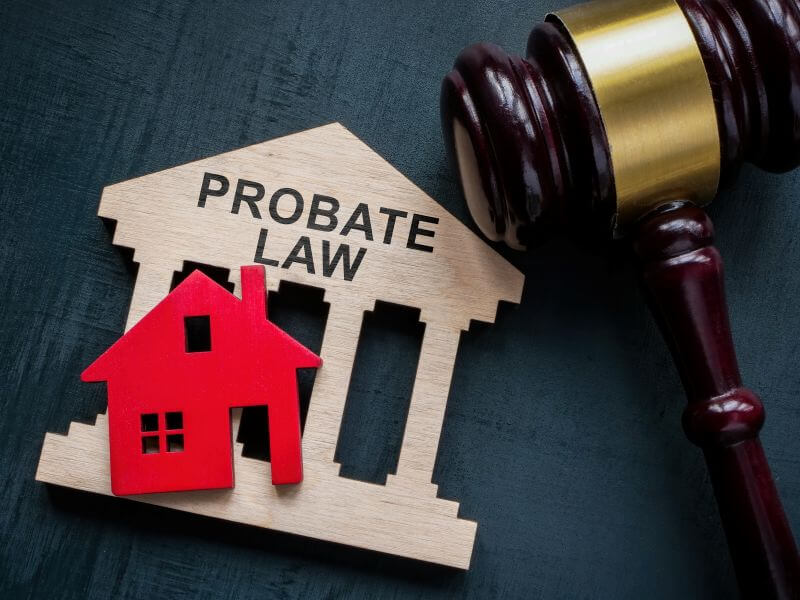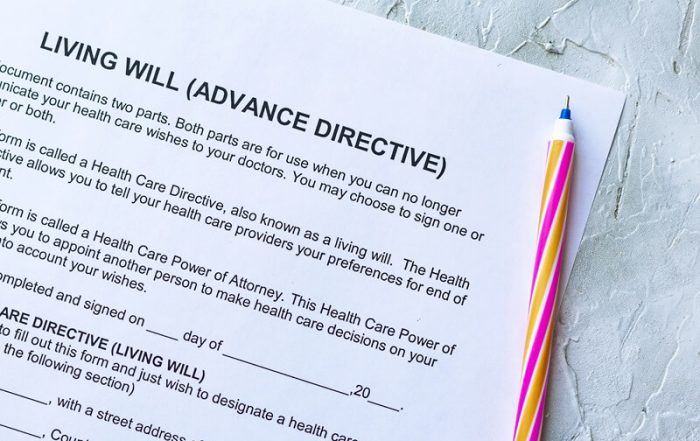Can You Settle Probate Litigation Outside Of Court?
Can You Settle Probate Litigation Outside Of Court?
Disputes over a loved one’s estate can feel like a storm cloud hanging over grieving families. However, probate litigation doesn’t always have to involve contentious courtroom battles. Instead, many disagreements can be addressed through alternative solutions that save time, money, and relationships.
This article explores whether probate disputes can be settled outside of court, covering various alternative resolution methods. Readers will learn about available paths to amicable solutions, from mediation to arbitration and negotiations. By the end, families can better understand how to achieve resolution efficiently and peacefully.

Understanding California Probate Litigation
Probate litigation arises when disputes occur over a deceased person’s estate. These disagreements can range from will contests to conflicts between beneficiaries or accusations of executor misconduct. While such issues are emotionally charged, understanding the root causes helps families approach them constructively.
Imagine probate litigation as untangling a ball of yarn—it’s messy at first. Still, with patience, the threads can be separated.
Typical litigation triggers include:
- Will Contests: Questions about the validity of a will due to alleged fraud, undue influence, or lack of capacity.
- Executor Disputes: Claims that the executor failed in their fiduciary duties, such as mismanaging estate assets.
- Beneficiary Disagreements: Arguments over the interpretation of will provisions or fairness of asset distribution.
Each probate dispute stems from unique circumstances but shares standard legal and emotional stakes. A lack of clear communication or unresolved tensions often worsens the situation, leading to litigation.
However, litigation isn’t the only path forward. Families can often resolve these disputes through alternative means, avoiding court and preserving relationships. Recognizing the causes and dynamics of probate litigation is the first step toward exploring these solutions.
Next, alternative dispute resolution methods can provide a way to address probate issues outside the courtroom.
Alternative Dispute Resolution (ADR) Methods
Alternative Dispute Resolution (ADR) offers practical ways to resolve probate disputes without court proceedings. These methods, including mediation, arbitration, and negotiation, focus on collaboration rather than conflict. ADR can save time, reduce costs, and preserve family relationships during emotionally charged situations.
Think of ADR as a toolkit with different tools for different problems. Whether it’s mediation for cooperative discussions, arbitration for binding decisions, or negotiation for direct agreements, each approach fits specific needs.
The most common ADR methods are:
- Mediation: A neutral mediator facilitates discussions to help parties find mutually agreeable solutions. This process is non-binding, encouraging open dialogue.
- Arbitration: An arbitrator acts like a private judge, reviewing evidence and making a decision. Depending on the agreement, this decision can be binding or non-binding.
- Negotiation: Parties communicate directly, often with the help of attorneys, to reach a compromise. This informal method allows for creative and personalized solutions.
ADR offers several advantages: it’s faster than litigation, less formal, and keeps disputes private. The collaborative nature of ADR often leads to outcomes that reflect the interests of all parties involved.
California law encourages ADR in probate cases, offering legal frameworks to support and enforce agreements reached through these methods.
Understanding these methods gives families a clear starting point for resolving disputes without court involvement. Next, learn more about mediation – a popular and effective ADR strategy.
Mediation In Los Angeles Probate Disputes
Mediation is one of the most effective and widely used methods for resolving probate disputes outside of court. In this process, a neutral mediator helps both parties reach a mutually acceptable solution through discussions. Unlike court proceedings, mediation emphasizes cooperation and allows families to retain control over the outcome.
Think of mediation as a bridge connecting two sides of a river. It provides a path for parties to meet in the middle, avoiding the tumult of a courtroom battle.
The mediation process includes:
- Selecting A Mediator. Parties choose a qualified, impartial mediator experienced in probate matters.
- Defining Issues. The mediator works with the parties to identify the specific areas of disagreement.
- Facilitating Dialogue. Discussions are conducted in a structured, respectful environment, allowing each side to express their concerns.
- Drafting An Agreement. If an understanding is reached, the mediator helps document the terms in a binding settlement.
While mediation offers significant advantages, its success depends on the willingness of both parties to compromise. In probate disputes where emotions run high, a skilled mediator can be invaluable in easing tensions and fostering understanding.
For families who cannot resolve their differences through mediation, arbitration offers a more formal path to resolution, as explored next.
Arbitration As An Alternative
Arbitration is a structured but less formal alternative to resolving probate disputes outside of court. In arbitration, a neutral third party—known as an arbitrator—acts like a private judge, reviewing evidence and issuing a decision. This method is especially useful for parties who want a definitive resolution but wish to avoid the time and expense of litigation.
Imagine arbitration as a fast-moving train compared to a courtroom trial’s slow freight. It gets you to the same destination but with fewer stops along the way.
The key features of arbitration are:
- Customized Process: Parties agree on the rules and scope of arbitration, tailoring it to their specific needs.
- Informal Atmosphere: While evidence is presented, the process is less rigid than a court trial.
- Binding Or Non-Binding Outcomes: The decision can be final, enforceable, or advisory, depending on pre-agreed terms.
While arbitration provides a middle ground between litigation and informal methods like mediation, it does have limitations. Binding arbitration, for example, leaves little room for appeal, making the arbitrator’s decision final in most cases.
Arbitration is ideal for disputes that require a definitive decision but don’t justify the cost and stress of a courtroom battle. Negotiation might be a better fit for those seeking a less formal yet cooperative approach, as explored next.
Negotiation Strategies
Negotiation is often the simplest and most direct method of resolving probate disputes. It involves parties and their attorneys discussing terms to reach an agreement.
Imagine negotiation as two chefs combining their best recipes to create a perfect dish. It requires effort and compromise but leads to a rewarding outcome.
Effective negotiation practices are:
- Clearly define priorities and desired outcomes.
- Stay open to compromise without abandoning core interests.
- Use attorneys to clarify legal points and draft agreements.
Negotiation works best when trust exists between parties or when all sides are motivated to settle. This approach avoids the costs of third-party facilitators and keeps decisions in the hands of the disputing parties.
Understanding California’s legal framework ensures that negotiated agreements are enforceable.
Legal Framework For Out-Of-Court Settlements In California
California’s legal system strongly supports alternative dispute resolution for probate cases. State laws encourage mediation and arbitration as part of the probate process. However, settlements must comply with specific legal standards to be valid.
Think of the legal framework as the scaffolding that supports a building. It ensures every agreement stands strong and complies with established rules.
Key legal considerations at this stage are:
- Court Approval: Settlements often require a judge’s approval, especially when minors or incapacitated individuals are involved.
- Documentation: Agreements must be clear, comprehensive, and signed by all parties.
- Enforceability: Properly drafted settlements carry the weight of court orders, ensuring compliance.
California’s probate laws aim to protect the interests of all parties while encouraging amicable resolutions. The next section examines the unique benefits of settling disputes outside court.
Advantages Of Settling Probate Disputes Outside Of Court
Settling probate disputes outside court offers several advantages. These benefits include cost savings, privacy, and preserving family harmony. Think of out-of-court settlements like choosing a scenic backroad over a congested highway—less stressful and often faster.
The top benefit is avoiding court fees, and prolonged litigation reduces expenses significantly. In addition, disputes remain confidential, unlike public courtroom records. Also, settlements can address unique family concerns in ways courts cannot.
While the advantages are clear, challenges may still arise during out-of-court processes.
Potential Challenges In Out-Of-Court Settlements
Despite their benefits, out-of-court settlements aren’t without challenges. Issues such as power imbalances or non-compliance may complicate resolutions. Think of these challenges as potholes on a smooth road—they’re frustrating but navigable with care.
Common challenge for out-of-court settlements:
- Power Imbalances: Stronger personalities may dominate discussions.
- Non-Compliance: Parties might refuse to honor agreements, requiring legal enforcement.
- Complex Cases: Some disputes may require court intervention to address legal intricacies.
Attorneys play a critical role in overcoming these hurdles, ensuring fair and enforceable agreements.
Role Of Attorneys In Facilitating Settlements
Attorneys are key allies in settling probate disputes outside court. They provide legal guidance, advocate for clients, and draft enforceable agreements.
Think of attorneys as architects, designing blueprints for a sturdy and lasting resolution.
Key contributions include:
- Explaining legal rights and obligations.
- Representing clients during negotiations or mediation.
- Ensuring agreements comply with California probate laws.
Working with skilled legal counsel increases the likelihood of a successful resolution. Transitioning to the local perspective, Los Angeles-based attorneys bring unique insights into regional probate laws.
Los Angeles Probate Attorneys
At Los Angeles Probate Attorneys, we are dedicated to resolving probate disputes efficiently and amicably. Our personalized approach prioritizes client needs and family relationships.

From facilitating mediation to drafting agreements, our services aim to simplify complex legal processes. Clients benefit from clear communication, diligent case management, and results-driven advocacy.
Whether navigating ADR or court proceedings, our firm ensures legal compliance and protects clients’ interests. Families in Los Angeles can trust their skills in probate administration and dispute resolution.
Summary
Settling probate litigation outside court allows families to resolve disputes with less stress and expense. Methods such as mediation, arbitration, and negotiation provide flexible options for reaching agreements.
California law supports these alternatives, but careful planning and legal assistance are crucial. Attorneys play a vital role in ensuring settlements are fair, enforceable, and legally sound. For those seeking support, Los Angeles Probate Attorneys offer compassionate guidance tailored to each family’s unique situation.








